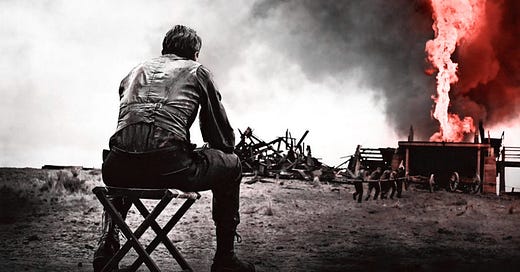Power is finite.
That's what I learned from the 2007 film, There Will Be Blood.
Critics consider it one of the finest films of the 21st century. Paul Thomas Anderson (one of the premier modern directors) delivers his best work alongside an Oscar-winning performance from Daniel Day-Lewis and Oscar-winning cinematography from Robert Elswit (the film received eight nominations in total).
[Spoilers — Skip to The Next Section] There Will Be Blood is about an oilman named Daniel Plainview. He manipulates Eli, a cunning local preacher, and his naive congregation into selling him the oil underneath their town. As Daniel's profits grow, so does his greed. He becomes a raging alcoholic, abandons his son, and kills multiple people who stand in his way. Bandy, one of the members of the town, allows Daniel to use his property for an oil pipeline. In exchange, Daniel has to go to church. But Eli uses the opportunity to publically humiliate Daniel. He implores him to be "washed…
Keep reading with a 7-day free trial
Subscribe to Main Street Insiders to keep reading this post and get 7 days of free access to the full post archives.




